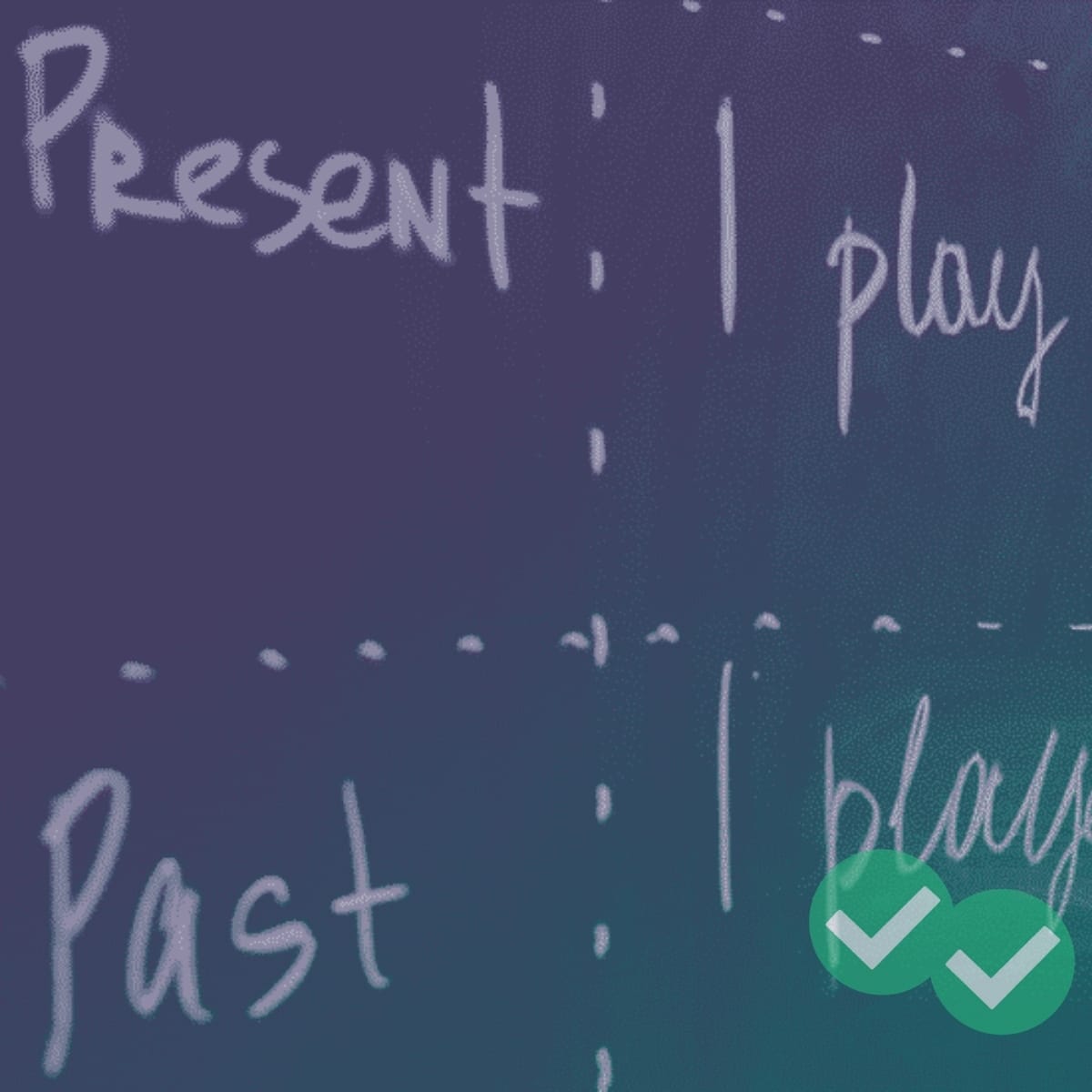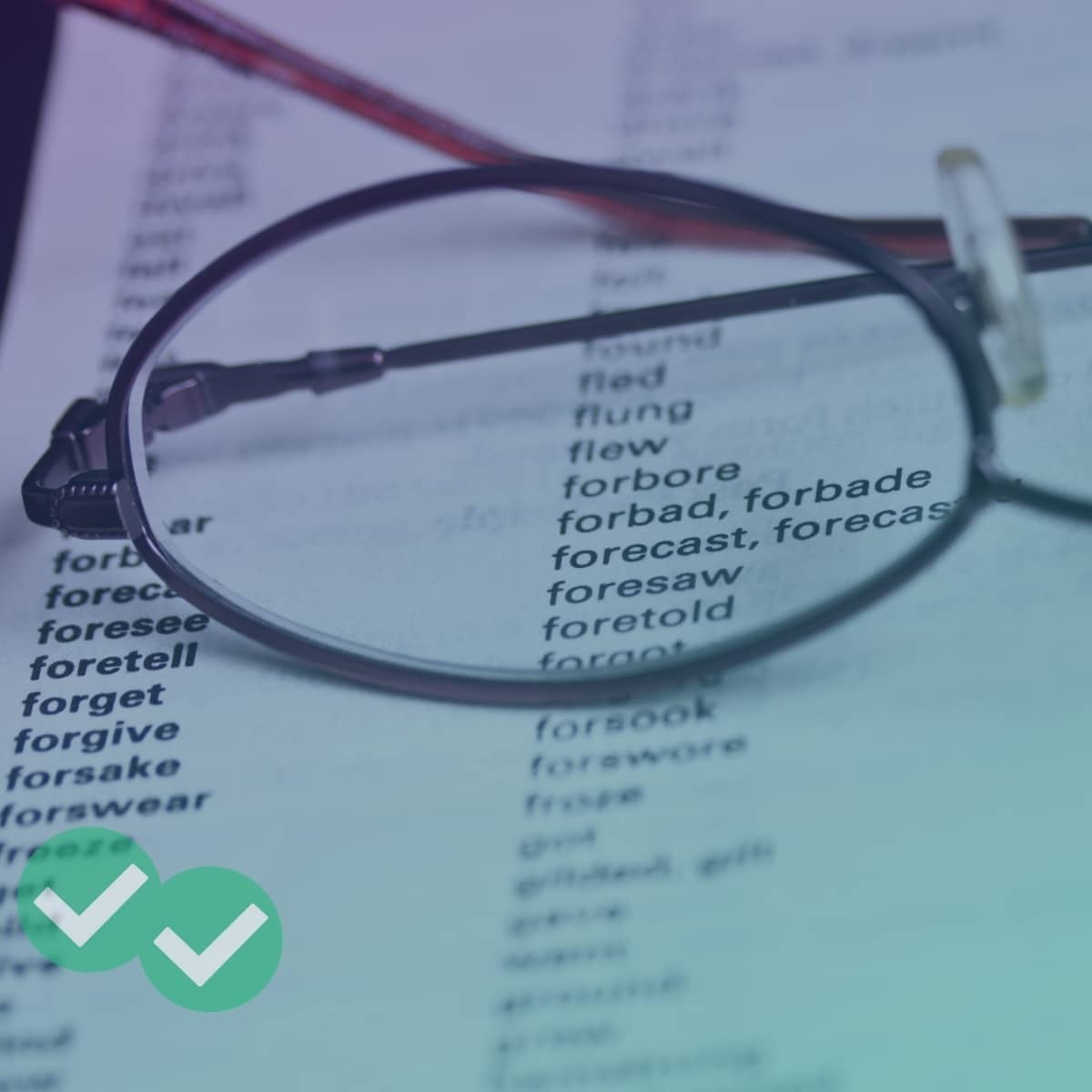
In this article, we’ll break down how to form and when to use the future perfect tense. For resources on all of the verb tenses, visit our main tenses page.
Forming the Future Perfect Tense
Quick Reference Table: The Future Perfect Tense in All forms
KEY
V3 → the third form (Past Participle) of an irregular verb
Ved → Past Participle form for regular verbs
| Forms | Verbs |
| + | Will + have + Ved/V3
I will have called 80 volunteers by next Tuesday. |
| ? | Will + subject + have + Ved/V3
Will you have called 80 volunteers by next Tuesday? |
| – | Will + not + have + Ved/V3
I will not have called 80 volunteers by next Tuesday. |
The formula for the future perfect tense is: will + have + past participle.
Forming the past participle is easy. Just add -ed or -d to the end of most regular verbs. However, English is loaded with irregular verbs.
Examples:
- We will have eaten by the time you get home.
- The group will have finished the project before the funding is cut.
- I will have walked three miles by the time she walks one.
Making It Negative
To use the future perfect tense in a negative form, use this formula: Will + not + have + the past participle.
Examples:
- You will not have spoken to ten thousand people by the time I get back from my trip.
- They will not have beaten the army before the winter weather sets in.
- The store will not have ordered your dress before the ball.
Asking a Question
When asking a question in the future perfect tense, use the formula: Will + subject + have + past participle
Examples:
- Will he have learned to tie his shoes before he plays his next tee ball game?
- Do you think they will have deleted the virus from our system before we return from the holidays?
** A note on ‘Going to’**
It is also possible to use ‘going to’ with am/is/are in this tense.
Example:
- Wow, you are going to have completed your doctoral studies before I even graduate with my bachelor’s degree.
However, this is rarely used in speaking, and you risk being too wordy in writing! But it’s good to know that this form is correct—and you could possibly hear it at some point.
When To Apply the Future Perfect Tense
Use #1: When describing an action that will be completed before another action or point in time in the future.
In other words: an action that will be completed between now and some point of time in the future.
Examples:
- She will have fixed the computer before it’s time for the meeting.
- We will have taken five quizzes by the end of the course.
- You will have visited how many states by the time you turn 35?
- They will not have prepared enough before it’s time for the big game.
**Note: You must have a specific end for an action when using the future perfect tense. If you do not have a specific end, use the simple future tense.**
Use #2: When you’re speaking about something that’s been happening for a while and will continue until another action in the future.
Generally, non-continuous verbs are used in this situation, but there are exceptions.
Examples:
- I will have lived in New York for 16 years before I move next month.
- Claire will have gone to dance class for 8 years as of next Tuesday.
The future perfect tense can be a little tricky. But, if you remember these uses, you’ll be able to recognize it and communicate using the tense effectively.



